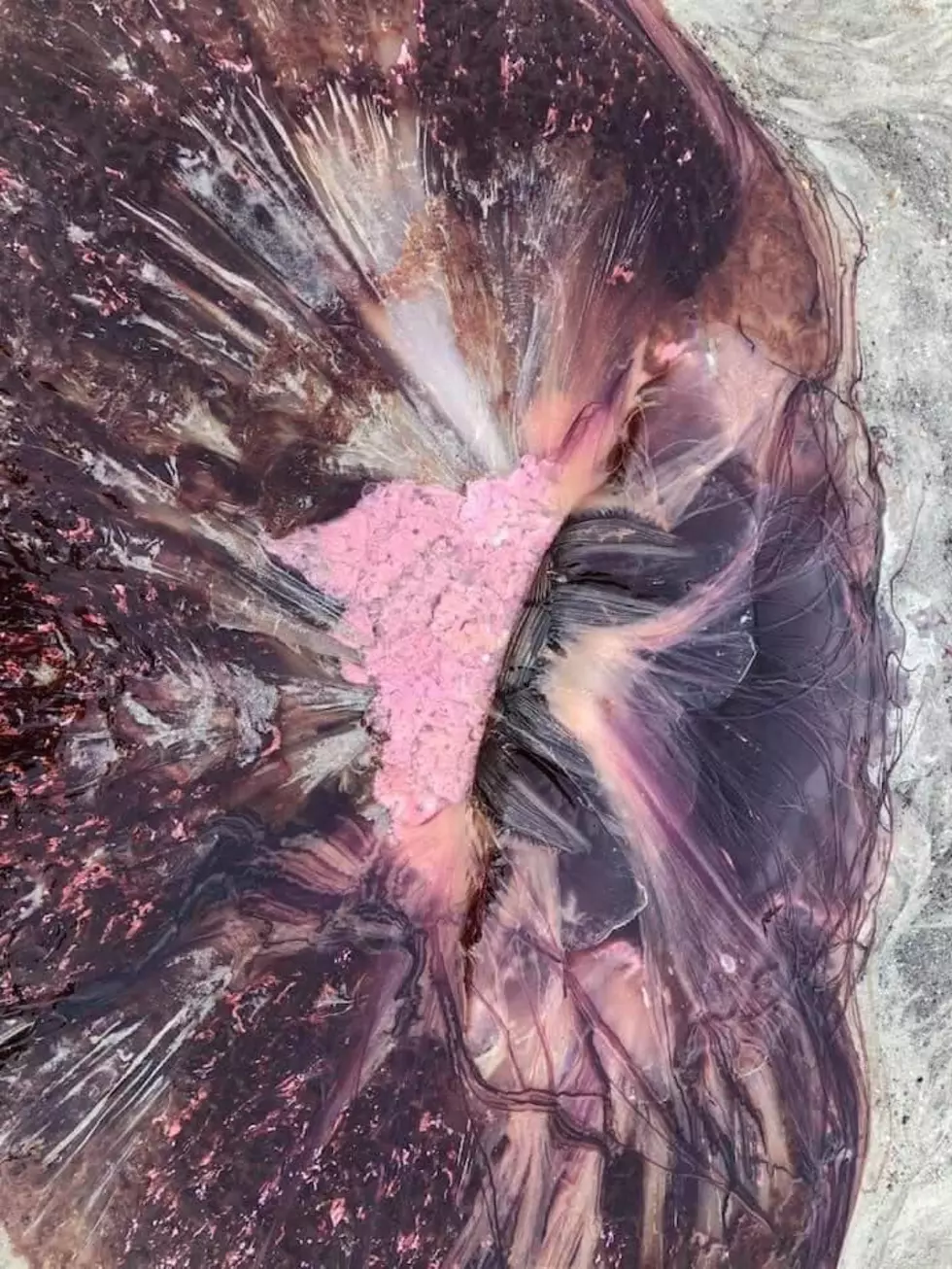
Maine Does Have Jellyfish and One of its Species is The Largest in The World
Does Maine Have Jellyfish?
You bet we do.
I grew up in Southern Maine but I never thought about having jellies in our waters. I always considered Maine a safe haven away from natural disasters, poisonous species, and other daunting things that just felt like they should be elsewhere, not here. Ignorance, really.
I used to jump off ferry docks and not think about getting stung by a jellyfish or dive off an anchored boat and not have one thought about a shark. Now, I’m shaking every time I step into the ocean and it’s not just from the freezing temps.
What Types of Jellyfish Does Maine Have?
Well, according to Maine Lobstermen’s Community Alliance, Maine has a few different species of jellies in its waters: comb, moon, and lion’s mane. Pretty badass names for some crazy creatures.
When I first became aware that Maine even had any jellyfish at all, I was walking on the beach and saw a blob in the sand and that was my great awakening. But it was a small little thing and looked harmless, so although I was stunned, I didn’t let it ruin my day.
I should have made my peace with that jelly encounter and never looked into it again but as you can tell by the topic of this article, I did some Maine jellyfish digging and I did not like what I found.
Are Maine Jellyfish Poisonous or Dangerous?
Yes… and turns out, they’re freaking MASSIVE.
You may or may not remember or even know about this, but a lion’s mane jelly washed up on Peaks Island back in 2020 and was 4.5 feet in diameter. These bad boys are the largest jellyfish in the world and their 1,200 stinging tentacles can grow more than 100 feet, longer than a blue whale.
They’re not just big and scary, they can and will hurt you so these are not the jellies to be taking photoshoots with. My jaw was on the ground for the entirety of this YouTube video:
New Hampshire Lion’s Mane Attack
If you watch the whole video, you’ll learn at the end that there was a lion’s mane “attack” in New Hampshire back in 2010 when a jelly was torn up into pieces somehow and the separated tentacles managed to sting around 150 people on the coast in the Granite State.
As the video shares, the rogue tentacles can still sting and attack because the jellyfish doesn’t even have a brain so those tentacles can have a mind of their own.
What to Do if You Get Stung By a Jellyfish
Let’s say a rogue tentacle or even a full jellyfish does sting you, then what? The same Lobstermen’s Alliance I mentioned earlier shares that if you get stung, you should flood the area with vinegar or isopropyl alcohol for at least 10 minutes and make a paste of baking soda to apply to the area.
There are mixed messages out there on whether or not peeing on the spot is good or bad. It seems like there may not be any medical benefit to it but it might relieve the pain? I don’t know, it’s up to you whether or not you want to get peed on.
So I guess if you’re really worried about getting stung, bring some vinegar and baking soda to the beach with you and maybe even some goggles. My biggest fear is closing my eyes, diving into the water, and having my face run right into a jelly. Can you imagine…
The 10 Unspoken Rules of the Beach to Keep in Mind This Summer
You're Breaking The Law In Maine If You Have Any Of These Animals As Pets
More From WSHK-WSAK 102.1 & 105.3 The Shark









